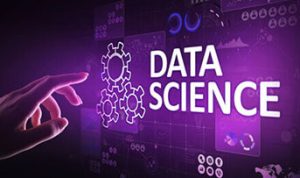Aspect Of Data Science
What Are The Ethical And Societal Implications Of An Aspect Of Data Science?
Information is the oil of this tech-savvy world, and data science is the combustion engine. However, with great power comes great responsibility. Data analytics encompasses everything from your daily shopping habits to mobile application usage including your Google search history. The data collected, generated and analyzed can cause substantial political ramifications. For instance, smart meters monitoring domestic electricity consumption help save electricity when not at home or suggest the cheapest electricity supplier depending on your electricity consumption pattern.
However, these electricity suppliers’ website states that if you provide real-time as opposed to weekly electricity consumption data, your yearly electricity costs may reduce by 20%. Now the question arises – Should electricity suppliers be allowed to pressure consumers into trading privacy for money?
The Three Aspects of Data Analytics
Every application, we use today from smartphones to personal laptops is entirely dependent upon the data collected from the various sources available on the Internet. Data Science research, create and analyze this information to create requisite data. The three aspects of data analytics include:
Data Harvesting
Data harvesting is the primary step in the data science field. There are plenty of ethical debates about data harvesting – A method in which the data required is collected from the user’s profile (done with the user’s consent and knowledge). For instance, the usage of mass data analysis in the medical field to diagnose disease has been highly appreciated and the research has gained further advancements with no restraints.
Data Evaluation
Data evaluation differs from real-time applications such as traffic prediction in which the data analysis and decisions are made from the user’s perspective. However, in a target-based application, the data analysis is done based on the individual’s personal information such as gender, nationality, caste, and ethnicity. To avoid gender debates and issues raised on discrimination, giant companies such as Google, Facebook, and Twitter incorporated rules and regulations to strengthen their data harvesting process on a transparent platform.
Data Control
On the one hand, big data help individuals modify and manipulate their personal data. On the other hand, it offers the same privilege to big organizations and government portals. Once you click on the terms and conditions mentioned on these applications, your personal data is no longer private. For instance, Google map uses multiple users’ location data and time to predict the traffic status on a busy road.
It may sound invasive, but the data collected by these traffic applications is valuable and crucial for the entire nation’s safety and the national public transport system. The traffic data analysis helps reduce carbon emission levels in the atmosphere and save more time.
The Shortcomings and Solutions
Shortcomings: The three main ethical challenges in data science are unfair discrimination, reinforcing human biases, and lack of transparency.
Solution: One has to implement rigid rules and regulations in the most significant areas. Focus more on data protection and improvise means to use user’s data under ethical and social morality of the community. Discover common ground, agreed upon by all, and implement them with huge responsibility before sharing the individual data with the government, engineers, scientists, and officials around the world.


